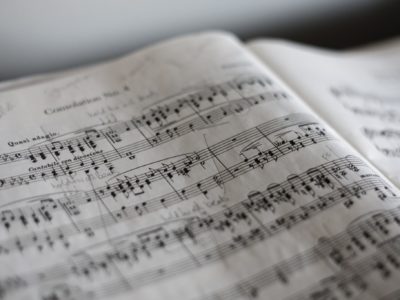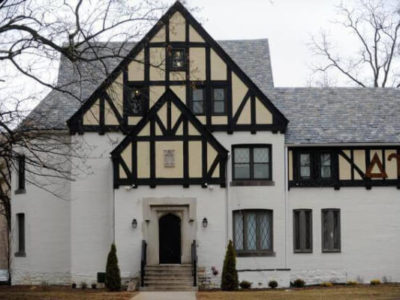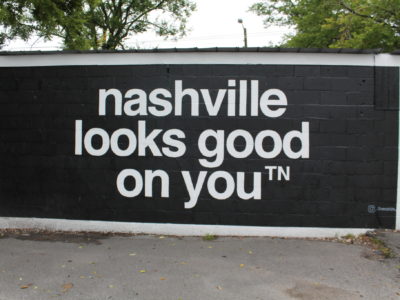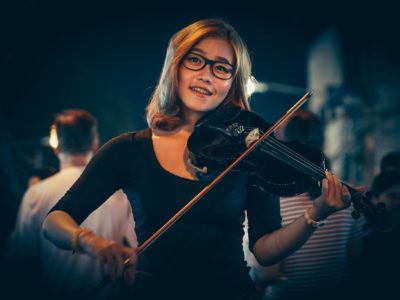From the advent of sound in cinema, film music emerged as an indispensable piece of the movie-watching experience. It communicates the film’s message and triggers an emotional reaction even the most profound piece of dialogue cannot. Many scores even surpass in popularity to the film they soundtracked. Some commonplace soundtracks we can all tip our hats to include Harry Potter, La La Land, Star Wars and well… you get the picture. No cinematic work can truly be complete without an awesome film score. And yet, through the years, some shockingly beautiful treasures managed to slip through the mainstream crowds as well as the test of time.
Journey into these 10 underrated film scores and how their respective composers created magic!
1. Ever After (George Fenton)
With its only fault being its corny title, Ever After (1998) deserves all the awards for the only version of Cinderella that makes sense. Presented through an imaginative lens set in Renaissance Era France, this feminist remake appeals to themes of freedom and identity. This is especially elaborated through the characters of Danielle and Henry, the enlightened model of “Cinderella and Prince Charming” who exchange views on philosophy, Thomas Moore and the struggles of the working class.
And if you think you have a soft spot for music in media, prepare for a reawakening. Ever After‘s entirely instrumental film score carries cottage core orchestra energy from start to finish. In fact, the score expresses plot and emotion so remarkably that I can visualize all the scenes and dialogue by just listening to the soundtrack.
“There’s this pretty scene where Danielle is swimming alone in the lake. The track paired with this moment ‘Walk on Water’ is beyond beautiful,” NYU graduate Kristine Khachaturian said. “It sounds like magic.”
I challenge you to not be completely transported after listening to Fenton’s music that speaks the language of the film.
2. Hunchback of Notre Dame (Alan Menken)
Alladin, Pocahontas, Hercules, Tangled, Beauty and the Beast and The Little Mermaid all receive due praise. What do these films have in common? Alan Menken: the melodic voice of Disney. However, one of his most iconic films, Hunchback of Notre Dame, has never gotten enough recognition in my book. From “Out There” to “Hell Fire” and “God Help the Outcasts”, these tracks have a certain je ne sais quoi not found in other Disney works.
Shout out to the cadenza in “Topsy Turvey” when Esmeralda dances the tarantella accompanied by a virtuosic violin, accordion and tambourine. It has “Prince Ali” energy but hits harder with folk influences that reflect the nomadic lifestyle of Romani people. The tarantella, a passionate southern Italian folk dance, famously represents freedom, individuality and fiery passion. I’d argue that antagonist Judge Frollo gets enraged watching Esmeralda because he sees her dance as a form of protest.
The film doesn’t visit conventional Disney tropes of getting the girl or following the princess. Instead, the music reflects protagonist Quasimodo’s loneliness, identity and selflessness. Lyricist Stephen Schwartz also tackles topics of racial justice versus corruption and thus, Menken brings forth the fire through the constant dramatization of bells. These two truly hit their stride with this French-influenced masterpiece starring a protagonist unlike any other.
3. Pan’s Labyrinth (Javier Navarrete)
Composer Javier Navarrete’s music more often than not floats close to fantasy and his score for Pan’s Labyrinth (2006) or El Laberinto del Fauno, meshes perfectly with the style of award-winning director Guillermo Del Toro. The film’s intro sequence, underscored by “Long, Long Time Ago”, gives rise to delicate and serene emotions. Adjacent to the strings, a lovely voice nimbly murmurs a tune. From end to end, the soundtrack contrasts innocence with hazy visions of dark childhood dreams.
“You never expect a movie you watch in Spanish class to leave a mark on you. Still, I’ve never forgotten about Pan’s Labyrinth, the monster’s eyes, and the tragic music,” Pasadena City College sophomore Alejandra Kazaz said.
The overwhelming theme of Pan’s Labyrinth carries a hypnotizing quality that transfigures gradually into a somber lullaby. Javier Navarrete thus displays a memorable soundtrack for an already striking film.
4. Tarzan (Phil Collins)
Phil Collins only has one composing mode: extreme legend. The Genesis drummer, singer and songwriter has been asked to write the music for two animations in the past: Tarzan and Brother Bear. To say he delivered would be an understatement considering even Disney awarded him the “Disney Legends” award. He brings Genesis’s “In the Air Tonight” vibe to his animated scores— long build-ups and insane climaxes. My English major brain simply can’t brush over how well his music aids the movie’s themes of escapism, supremacy and peace. In fact, I’d say Collins saved the movie from turning into a controversial film, like the problematic 1912 novel Tarzan of the Apes.
One of the most fun tracks “Trashin’ the Camp” features scatting and the use of unconventional instruments like a typewriter, broken plate, torn paper, spoons and other assets of mass household destruction. It acts as the perfect rhythm hoisting jam that makes you want to go outside, absorb the sun and clown-around with an old buddy. Other amazing songs like “Two Worlds” and “You’ll Be in My Heart” prove Collins deserved an award for his lyrics alone, which advocate acceptance among communities. Something about the progressive rock genre brings so much realism to animations. I vote for hiring more rock legends to write music for Disney.
5. One Day (Rachel Portman)
Twenty years, two people, one day and zero tears left in my eyes. If you haven’t seen this film, get ready to withstand some gut-punching scenes. Emma and Dexter become friends on July 15, 1988, and this film checks in on their friendship every year on that day. Composer Rachel Portman does a brilliant job at transforming the main theme melody over and over to fit the varying scenes between the two main characters.
The motif ranges from being played in the style of a breezy waltz to a slower, more wistful breakdown. Given that this movie revolves around longing and missed opportunities, the melody expresses just that in four notes by moving forward to hit a high note and then immediately dipping back down into hesitation. So much thought went into this score— evident to anyone willing to listen to this charming yet emotional soundtrack.
6. Atonement (Dario Marianelli)
Yes, the typewriter can be used as a percussion instrument. Just listen to Italian composer Dario Marianelli’s “Briony” to understand for yourself. While you may be expecting the exaggerated instrumental pomp commonly connected with a period piece like this, Ian McEwan’s passionate story of struggle and defeat holds up significantly more than the typical score design. Marinelli’s music brims with tragic yet magnetizing string and woodwind melodies, featuring high-profile performances from pianist Jean-Yves Thibaudet and cellist Caroline Dale.
Fun Fact: Marianelli’s music enhances yet another Kiera Knightley film that he has worked on. Atonement actually won Best Original Score at the 80th Academy Awards and 65th Golden Globes. Nonetheless, after its initial impact, it fell off the radar, and nominated competitor Ratatouille has instead shined through the test of time.
7. Cinderella (Rodgers and Hammerstein)
Did you know more adaptations of Cinderella exist in the world than the number of people? Fine, that’s a bibbidi-bobbidi bald-faced lie. Even so, it probably made you think about how many versions you’ve seen about a tale involving a pumpkin, a fairy godmother, glass slippers and most importantly, a young girl with cinders on her face who glows-up in a matter of hours.
Rodgers and Hammerstein’s Cinderella, a 1997 musical fantasy, hypertexts the work of French writer Charles Perrault who wrote the original tale of “Cendrillon”, or “The Little Glass Slipper” 400 years ago.
As musicals go, this one has comedy, magic, gleaming costumes and a stacked cast of amazing singers. And yet, as far as recognition goes, this score sits behind Rodgers and Hammerstein’s Tony Award for The King and I and Pulitzer Prize for Oklahoma!. Sure, the plot of love at first sight can be annoying, but the music? Sublime. It’s disappointing that the voices of Brandy, Whitney Houston and Bernadette Peters could be so overlooked. On the bright side, as of last month, R&H’s Cinderella finally became available on Disney+.
8. If Beale Street Could Talk (Nicholas Britell)
Often there lies a drop of sadness within special gratifying moments. You become cognizant of your own content and try to memorize the moment before it fades. That warm overwhelming mind space of love, joy and reflection can be otherwise described as the underrated film score for If Beale Street Could Talk. Set in 1970s Harlem, this film follows a love story cut short when Tish’s fiancé Alonzo falls victim to a wrongful arrest due to racist pretenses.
Composer Nicholas Britell (Moonlight, The Big Short) sets the bar high by writing a score that could stand alone as a film in and of itself. He pushes a cinematic and storytelling quality onto the harmonic structure of the score.
Through tracks like “Agape” and especially “Eros”, Britell creates a conversation between the instruments. The music projects the thoughts of the characters on screen, otherwise traveling through the metro in silence. If you care to experience film music at its finest, head to Hulu or Youtube immediately to stream If Beale Street Could Talk!
9. Prince of Egypt (Hans Zimmer & Stephen Schwartz)
VHS babies will know that in 1998, movies like Prince of Egypt contained ground-breaking animation and songs. Though, given the extensive list of compositions under Hans Zimmer and Stephen Schwartz’s belt, this soundtrack in particular gets forgotten.
“My love for animations has no end but even I didn’t know about this film until I saw a TikTok creator singing a lullaby,” Dunwoody College freshman Jack Strawn said. “I immediately watched the movie and grew obsessed.”
The bone-chilling opening song “Deliver Us” will strike a chord with you, no matter your religious affiliation. The vocals of Israeli singer Ofra Haza, who plays Moses’s mother, yield an all-consuming amount of beauty. Singing both in English and Hebrew, her trills set the stage for an audience ready to behold an intense story. It took Dream Works seven years to finish Prince of Egypt and it truly showcases one of their best soundtracks.
10. Sherlock Holmes (Hans Zimmer)
The art of adaptation seems to be a rite of passage that all creators eventually play through. So there comes a point where if you cannot reinvent the magic, the music will quickly become boring.
Zimmer’s take on the adaptation game makes this score come alive. He doesn’t discount adaptations and thus, his method allows him to truly capture the essence of mysterious 19th-century London. I can imagine myself strolling past red phone booths and streets that change names every other step.
He combines a solo violin, accordion and a zither in tracks like “Discombobulate” and “Psychological Recovery” to create Eastern European characteristics. Better known for his scores in Inception and The Lion King, Zimmer’s Sherlock Holmes (2009) score often gets lost in the mix. And while minimalist music currently stays trending, intricate folk-inspired scores like this will always be the true treasures.



















